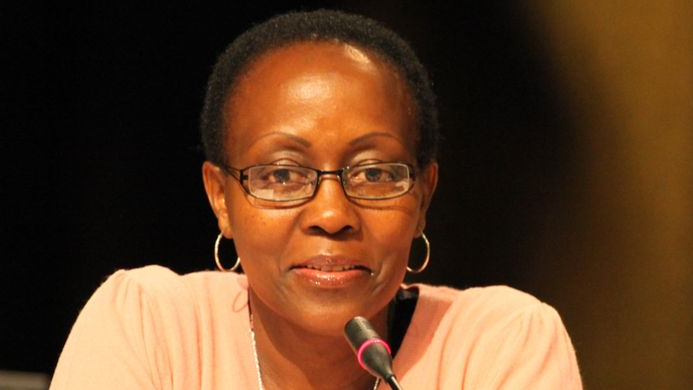
Elizabeth M. Mrema. / AEWA
Elizabeth M. Mrema. / AEWA
Tanzanian Elizabeth Maruma Mrema was appointed Executive Secretary of the Convention on Biological Diversity (CBD). The appointment was made by United Nations Secretary-General Antonio Guterres and makes Mrema the seventh head of the convention after six a month period as acting executive secretary.
Stressing that biodiversity is going through a "critical time," Mrema said that "the ongoing COVID-19 crisis has reaffirmed what we already know – that biodiversity is fundamental for human health – and has given us all a new urgency to protect it."
"My immediate priority is to ensure successful negotiations in developing a robust and ambitious post-2020 global biodiversity framework," she added, according to a CBD press release.
The framework draft outlines five long-term goals related to the Convention's 2050 Vision for Biodiversity, which aims at living in harmony with nature, and is expected to be agreed by the Conference of the Parties (COP) in Kunming, China, in 2021.
"The post-2020 framework can play a significant role in building the resilience needed in the face of growing environmental, health and development challenges, and will be relevant for the period of reconstruction following the COVID-19 pandemic," CBD noted.
In a recent interview with CGTN's Digital Environment Editor, Mrema noted that "the present COVID-19 crisis provides us with a reset button on our relationship with nature. It can still be the year that our global attitude and approach to nature fundamentally changes."
For her, the pandemic reaffirms "that biodiversity is fundamental for human health – and has given new urgency to the need to protect it," and it has also shown that "international cooperation is paramount for the health of our nature, our economies, and our people."
"Overall, biodiversity loss is continuing, despite substantial ongoing efforts for biodiversity conservation and sustainable use," she said.
A lawyer and career diplomat, Mrema has been working with the UN Environment Program (UNEP) for two decades. In 2009 she was appointed as the executive secretary of the UNEP/Secretariat of the Convention on the Conservation of Migratory Species of Wild Animals and acting executive secretary of the UNEP/ASCOBANS; then from 2012 to 2014, she was the deputy director of the Ecosystems Division; and more recently director of the Law Division.